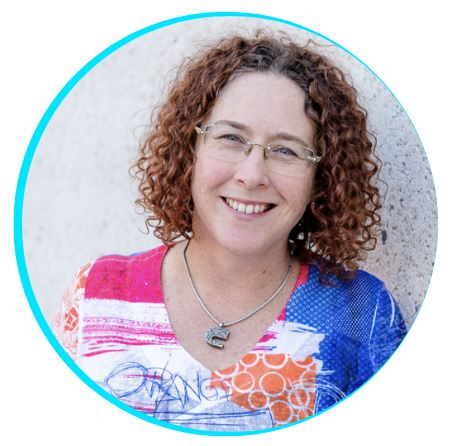
In an age defined by rapid technological advancement, global disruption, and increasing complexity, the ability to anticipate and shape the future is no longer a luxury, it’s a necessity.
On 29 July CFE will host a thought-provoking seminar led by internationally recognised futurist and strategist Dr Elissa Farrow, titled Shaping Change Through Participatory Futures: A Foresight-Inspired Approach to Transformation.
This session is part of CFE’s FUTURES UNLOCKED seminar series, which brings together leading thinkers, researchers, and practitioners to explore how individuals and organisations can thrive in an increasingly unpredictable world. Held monthly, the series is designed to bridge cutting-edge academic research with practical, real-world strategies for navigating complexity, fostering innovation, and building future-ready capabilities.
Why participatory futures matter
Dr Farrow’s seminar will delve into the power of participatory foresight, a set of methodologies that invite diverse stakeholders to co-create visions of the future and collaboratively shape pathways toward preferred outcomes. In a world marked by volatility, uncertainty, complexity, and ambiguity (VUCA), these approaches are essential for building resilient, inclusive, and adaptive systems. Participants will be introduced to tools such as scenario co-creation, futures wheels, and speculative artefact design, which enable organisations to surface hidden assumptions, explore emerging risks and opportunities, and foster a shared sense of agency in the face of change. These methods are not just theoretical – they are grounded in real-world practice and supported by Dr Farrow’s extensive experience in strategic consulting and organisational transformation.
Insights from research and practice
Drawing on her doctoral research, Dr Farrow will share insights from her exploration of the six pillars of futures thinking, which she used to examine the evolving nature of organisations and the implications of artificial intelligence on leadership, team dynamics, and change processes. Her work highlights how foresight can be embedded into everyday decision-making, enabling leaders to move beyond reactive problem-solving and toward proactive, values-driven transformation. Attendees will gain a deeper understanding of how futures thinking can be used to:
- Identify and respond to emerging trends and disruptions
- Engage stakeholders in meaningful dialogue about long-term goals
- Design adaptive strategies that align with evolving societal needs
- Build organisational capacity for innovation and resilience
About Dr Elissa Farrow
 Dr Farrow is a futurist, author, speaker, coach, and strategist with over 25 years of experience in user-centred research, organisational innovation, and change facilitation. Her work spans sectors including education, government, technology, and social impact, and she is known for her ability to translate complex ideas into actionable insights. As a consultant, she helps organisations navigate the intersection of strategy, foresight, and emerging technologies—particularly AI—and supports leaders in building future-ready cultures.
Dr Farrow is a futurist, author, speaker, coach, and strategist with over 25 years of experience in user-centred research, organisational innovation, and change facilitation. Her work spans sectors including education, government, technology, and social impact, and she is known for her ability to translate complex ideas into actionable insights. As a consultant, she helps organisations navigate the intersection of strategy, foresight, and emerging technologies—particularly AI—and supports leaders in building future-ready cultures.
Event details
-
- Date: Tuesday, 29 July 2025
- Time: 1:00pm arrival for a 1:15pm start | 2:15pm finish
- Location: QUT Gardens Point Campus | Gibson Room (Z Block, Level 10)
- Register
Register
With interest in the event already high, early registration is strongly recommended. Whether you’re a business leader, educator, policymaker, or changemaker, this seminar offers a unique opportunity to expand your future literacy and gain practical tools to lead transformative change in your organisation and community.
Register
Missed a session?
Each Futures Unlocked session will be recorded and uploaded to the CFE YouTube site. Watch past recordings now.
Dr Joseph Voros | Tuesday 24 June
Dr Joseph Voros is a futurist and strategic foresight practitioner with over 25 years of experience helping organisations navigate long-term change. With a PhD in theoretical physics, his early career included time at Netscape in Silicon Valley before transitioning to futures work in academia and policy. At Swinburne University, he played a key role in developing foresight capabilities and taught in the Master of Strategic Foresight program. His award-winning work on foresight methodologies and futures intelligence continues to influence strategic thinking globally. Now working independently, Dr Voros advises institutions such as NATO and the Australian National University on futures strategy, scanning, and long-range thinking. His current focus is on applying deep-time perspectives – such as Big History and Cosmic Evolution – to inform future-oriented decision-making at planetary scale. He remains committed to advancing the discipline of Futures Studies through research, mentoring, and global collaboration.
